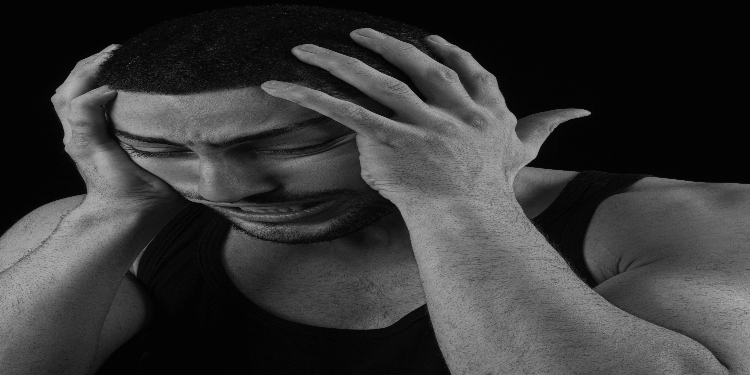Introduction:
Physical injuries are hard to miss. They come with bandages, casts, and treatment plans that everyone can see. But the emotional and mental strain that follows an injury often hides in plain sight. From the moment the injury happens, stress takes root. Whether it is the shock of the event, the uncertainty of recovery, or the overwhelming process of navigating insurance and legal matters—many people face far more than just physical pain. Yet, this part of the recovery journey is rarely discussed openly.
Stress can quietly shape every part of an injured person’s life. It affects relationships, slows down healing, disrupts sleep, and can even impact decision-making when it matters most. While doctors treat broken bones and torn ligaments, few resources focus on the psychological toll of being hurt, losing work, or needing help with daily tasks. This article explores what no one tells you about injury-related stress and offers real strategies to help manage it effectively.
The emotional shock starts sooner than you expect:
One of the first emotional hurdles after an injury is the sheer shock of the incident itself. Even a minor accident can shake your sense of security. Your brain immediately switches into survival mode—filled with confusion, adrenaline, and fear. At this point, the body may not even register pain yet, but your mental state is already being affected. The emotional aftershocks can linger far longer than the injury itself, especially if the event was traumatic or unexpected.
These early emotional responses are often overlooked. People might tell you to “stay strong” or focus on physical healing, but that does not make the fear go away. If anything, suppressing these emotions can lead to more anxiety and a sense of isolation. Acknowledging that the mental impact begins early is key to getting ahead of stress before it becomes overwhelming.
Physical pain and emotional stress feed off each other:
Pain is not just a physical experience—it creates a ripple effect that can cloud your mood, increase irritability, and drain your energy. When the pain is constant or unpredictable, it becomes a major source of emotional stress. This stress, in turn, makes the body more sensitive to pain, creating a cycle that can be hard to break. Suddenly, you are not just dealing with an injury, but a full-body emotional shutdown. In more serious life situations, such as managing care for a loved one under sudden legal or medical strain, options like Emergency Guardianship in Arizona can become necessary to ensure their safety and support.
Understanding this connection helps you approach recovery with more empathy for yourself. Managing stress is not just about feeling better emotionally—it can also help your physical body heal. Techniques like deep breathing, mindfulness, and gentle exercise can reduce pain and anxiety, creating space for your system to recover more fully and calmly.
Sleep disruption becomes an invisible barrier to healing:
Sleep is often the first thing that gets disrupted after an injury, and it is one of the most important parts of recovery. Pain can make it difficult to fall asleep or stay asleep, while stress causes racing thoughts or nightmares. Without quality rest, your body does not repair tissues as quickly, and your brain remains foggy and reactive during the day.
What makes this worse is how subtle the effects are. Poor sleep slowly chips away at your emotional stability, making you more prone to stress, mood swings, and even depression. Developing a sleep routine early—like cutting screen time, avoiding caffeine late in the day, or using relaxation exercises—can help you restore this critical function. If necessary, speak to your doctor about pain management techniques that promote better rest.
Financial pressure adds an unexpected emotional burden:
Injuries often come with hidden costs—lost wages, travel expenses, medication, or even home adjustments. As the bills pile up, so does the pressure. Many injured individuals begin to worry not just about getting better, but about how they will keep their job, feed their family, or pay rent. This financial stress can feel more urgent than the injury itself.
Trying to recover while worrying about money creates a crushing load of anxiety. That is why it is crucial to explore every financial support option available, from statutory sick pay and benefits to professional legal advice. When legal support is needed, working with experienced Personal Injury Solicitors can help you understand your rights and pursue fair compensation, giving you space to focus on recovery instead of finances.
Relationships may strain under the pressure of recovery:
Injury does not just affect the person hurt—it also impacts the people around them. Friends and family may want to help, but they may not fully understand what you are going through. Over time, frustrations can arise: from limited mobility, emotional changes, or shifts in household responsibilities. Even supportive loved ones can experience burnout or unintentionally add stress through well-meaning advice or impatience.
This can leave injured individuals feeling guilty, lonely, or like a burden, which deepens emotional stress. Clear, honest communication is essential. Let people know how you feel, and do not be afraid to ask for specific kinds of help. It also helps to establish boundaries—allowing yourself time and space to recover emotionally, without pressure to entertain or meet others’ expectations.
Tips to protect relationships during recovery:
- Share updates regularly so loved ones feel involved
- Be specific when asking for help to reduce confusion
- Express appreciation but also set emotional boundaries
Loss of independence can quietly wear down confidence:
Before an injury, tasks like driving, dressing, or shopping may have seemed automatic. After an injury, these same activities can suddenly become difficult or impossible. This loss of independence chips away at self-confidence and can lead to embarrassment, frustration, or depression. For many, needing help with simple tasks is one of the hardest parts of recovery.
The stress of feeling dependent can lead to withdrawal and a reluctance to speak up about emotional struggles. It is important to reframe recovery as a temporary chapter—not a permanent loss. Celebrate small wins, and when necessary, seek support services that focus on empowering your independence. Whether it is through occupational therapy or adaptive tools, there are ways to regain a sense of control.
Mental health support is not always offered but often needed:
One of the biggest oversights in post-injury care is the lack of automatic mental health support. While doctors address physical injuries, few patients are referred to therapy or counselling as part of standard recovery. Yet, many people deal with anxiety, PTSD, or depression after a traumatic incident, especially if it involved violence or serious harm.
You do not have to wait until things feel unbearable to seek help. Even just a few sessions with an anxiety therapist can give you the tools to cope better, manage stress, and feel more emotionally grounded. If private therapy is not affordable, explore NHS services, local mental health charities, or talk to your GP about referrals. Emotional health should be seen as part of the healing process, not a separate issue, much like how trampolines Canada can be integrated into activities that promote physical and mental well-being, emphasizing the importance of holistic approaches to health and recovery.
Stress can make legal decisions feel overwhelming:
Filing a claim or dealing with legal paperwork can be confusing even when you are feeling well. When you are stressed, in pain, and emotionally drained, these decisions can feel nearly impossible. Many people delay action or avoid pursuing what they are entitled to simply because the process feels too heavy to handle.
Building a support system, including family, trusted friends, or legal professionals, helps ease this burden. Delegate where possible and take each step slowly. Keep all documents in one place, make lists of questions for solicitors, and set manageable goals for paperwork. The legal process does not need to be rushed—it needs to be manageable in the context of your recovery.
Conclusion:
Dealing with an injury is about more than just fixing what is broken. It is about navigating the waves of fear, frustration, and pressure that follow. Too often, people push through the stress without recognising how much it affects their healing. They stay quiet about their emotional pain, try to be strong for others, and avoid asking for the help they need.
But stress is not a sign of weakness—it is a natural response to an unnatural situation. The more we talk about it, prepare for it, and address it, the easier it becomes to recover fully. Whether through emotional support, medical care, or legal guidance, every step you take to manage injury-related stress brings you closer to peace, confidence, and strength on the other side of recovery.


![7 Best POS Software in the UK [2026 Edition]](https://todaynews.co.uk/wp-content/uploads/2026/02/7-Best-POS-Software-in-the-UK-2026-Edition-360x180.png)








































































